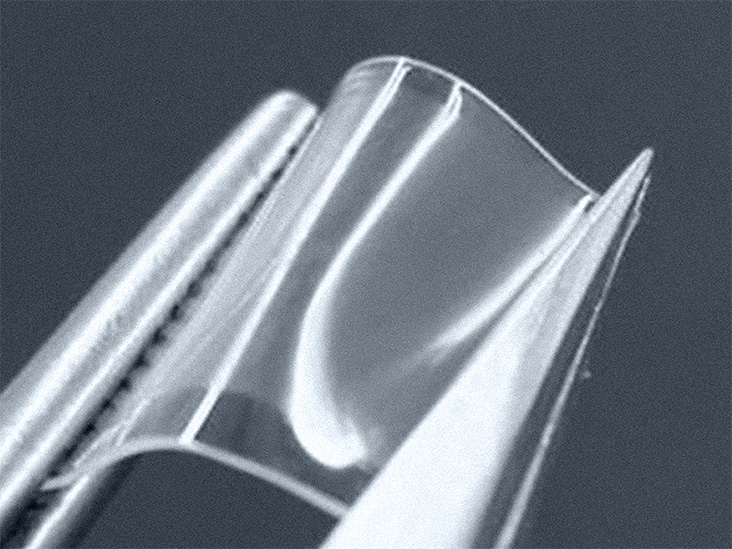The painless patch dissolves after delivering timed-release treatment.

Image credit: Purdue University/Chi Hwan Lee.
According to the American Cancer Society (ACS), roughly 100,350 new cases of melanoma will have been diagnosed in the U.S. by the end of 2020. Melanoma accounts for more fatalities than any other type of skin cancer, and the ACS anticipate 6,850 deaths from melanoma this year.
Recent advances in the delivery of topical chemotherapy for melanoma offer more effective postsurgical treatment options than standard chemotherapy, with reduced toxicity and side effects.
However, these therapies are conventionally microneedle-based and can be painful, limiting their acceptance.
Now, a new study from researchers at Purdue University, in Lafayette, IN, and published in the journal ACS Nano, proposes a solution.
The researchers have developed a patch that painlessly delivers a topical treatment for melanoma.
“We developed a novel wearable patch with fully miniaturized needles, enabling unobtrusive drug delivery through the skin for the management of skin cancers,” says Chi Hwan Lee, an assistant professor of biomedical engineering at Purdue and senior author of the study.
Removal by surgical excision is the preferred treatment for skin cancer. However, melanoma can be aggressive and recur frequently, often necessitating repeated rounds of conventionally delivered chemotherapy and radiation therapy.
Chemotherapy is a particularly important element of treatment when surgery is no longer an option or when the cancer has spread.
Because these therapies can be difficult for patients and often cause toxicity and other side effects, researchers are looking into t

